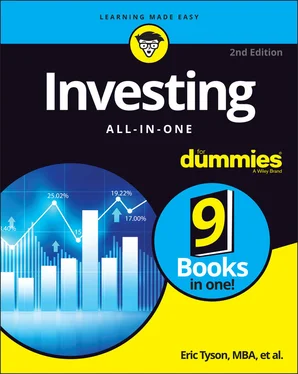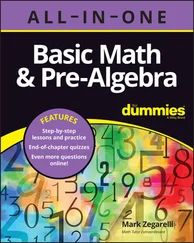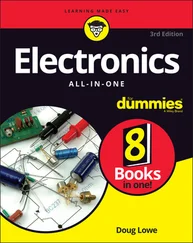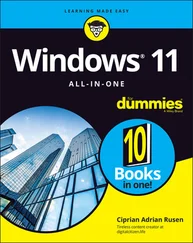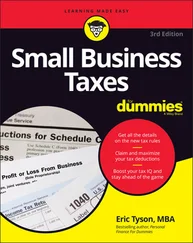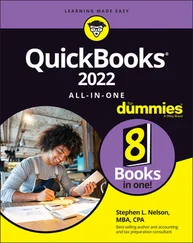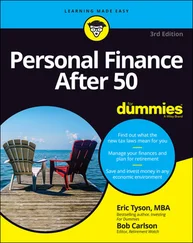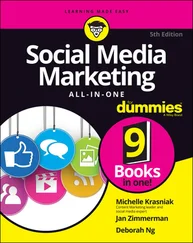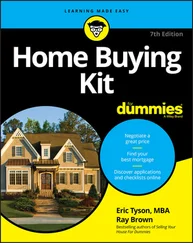Eric Tyson - Investing All-in-One For Dummies
Здесь есть возможность читать онлайн «Eric Tyson - Investing All-in-One For Dummies» — ознакомительный отрывок электронной книги совершенно бесплатно, а после прочтения отрывка купить полную версию. В некоторых случаях можно слушать аудио, скачать через торрент в формате fb2 и присутствует краткое содержание. Жанр: unrecognised, на английском языке. Описание произведения, (предисловие) а так же отзывы посетителей доступны на портале библиотеки ЛибКат.
- Название:Investing All-in-One For Dummies
- Автор:
- Жанр:
- Год:неизвестен
- ISBN:нет данных
- Рейтинг книги:3 / 5. Голосов: 1
-
Избранное:Добавить в избранное
- Отзывы:
-
Ваша оценка:
- 60
- 1
- 2
- 3
- 4
- 5
Investing All-in-One For Dummies: краткое содержание, описание и аннотация
Предлагаем к чтению аннотацию, описание, краткое содержание или предисловие (зависит от того, что написал сам автор книги «Investing All-in-One For Dummies»). Если вы не нашли необходимую информацию о книге — напишите в комментариях, мы постараемся отыскать её.
Investing All-in-One For Dummies
.
Dummies
Investing All-in-One For Dummies
Investing All-in-One For Dummies
Investing All-in-One For Dummies — читать онлайн ознакомительный отрывок
Ниже представлен текст книги, разбитый по страницам. Система сохранения места последней прочитанной страницы, позволяет с удобством читать онлайн бесплатно книгу «Investing All-in-One For Dummies», без необходимости каждый раз заново искать на чём Вы остановились. Поставьте закладку, и сможете в любой момент перейти на страницу, на которой закончили чтение.
Интервал:
Закладка:
Estate planning: Most folks need a simple will to delineate to whom they would like to leave all their worldly possessions. If you hold significant assets outside retirement accounts, you may also benefit from establishing a living trust, which keeps your money from filtering through the hands of probate lawyers. Living wills and medical powers of attorney are useful to have in case you’re ever in a medically incapacitated situation. If you have substantial assets, doing more involved estate planning is wise to minimize estate taxes and ensure the orderly passing of your assets to your heirs.
For all the details on the best and most effective ways to buy insurance, what to look for in policies, and where to get good policies, see Personal Finance For Dummies by Eric Tyson, MBA (Wiley).
Chapter 4
Starting Out with Bank and Credit Union Accounts
IN THIS CHAPTER
 Understanding what banks are good for and not good for
Understanding what banks are good for and not good for
 Evaluating, selecting, and even negotiating with banks
Evaluating, selecting, and even negotiating with banks
 Accessing credit unions and other alternatives to banks
Accessing credit unions and other alternatives to banks
Customer visits to stand-alone bank branches with a lobby and tellers are going the way of the big-city newspaper business. Both are in decline and in industries that are being disrupted by the internet.
Who needs retail banks, with their costly-to-maintain branches, when you can do your banking online? You can conduct most transactions quicker online, and it saves the bank money, which enables it to offer you better account terms. And there’s no need to rush out at lunchtime to be sure you make it to your bank during its limited open hours. Online banking is generally available 24/7.
But here are even bigger questions for you to consider: Do you even need a bank account? What are your best alternatives? That’s what this chapter explores.
Everyone needs an account or two from which to conduct transactions, including paying bills and storing newly earned money. Such foundational accounts are essential to get in order before proceeding with investing that has the potential to produce higher returns.
Understanding FDIC Bank Insurance
What makes keeping your money in a U.S. bank unique is the Federal Deposit Insurance Corporation (FDIC) insurance that protects bank deposits. If your bank fails (and as history shows, some banks do fail), and if your bank participates in the FDIC system, your bank account is insured by the U.S. government up to $250,000. The stamp of FDIC backing and insurance is soothing to some folks who worry about all the risks and dangers in the investment world.
While the FDIC insurance is worth something, banks have to pay for this protection. That cost is effectively passed along to you in the form of lower interest rates on your deposits.
 Just because the federal government stands behind the banking FDIC system doesn’t mean your money is 100 percent safe in the event of a bank failure. Although you’re insured for $250,000 in a bank, if the bank fails, you may wait quite a while to get your money back — and you may get less interest than you thought you would. Banks fail and will likely continue to do so. During the 1980s and early 1990s, and again in the late 2000s, hundreds of insured banks and savings and loans failed. (Between the early 1990s and mid-2000s — a relatively strong economic period — only a handful of banks failed annually.)
Just because the federal government stands behind the banking FDIC system doesn’t mean your money is 100 percent safe in the event of a bank failure. Although you’re insured for $250,000 in a bank, if the bank fails, you may wait quite a while to get your money back — and you may get less interest than you thought you would. Banks fail and will likely continue to do so. During the 1980s and early 1990s, and again in the late 2000s, hundreds of insured banks and savings and loans failed. (Between the early 1990s and mid-2000s — a relatively strong economic period — only a handful of banks failed annually.)
 Any investment that involves lending your money to someone else or to some organization, including putting your money in a bank or buying a Treasury bond that the federal government issues, carries risk. Any student of history knows that governments and civilizations fail.
Any investment that involves lending your money to someone else or to some organization, including putting your money in a bank or buying a Treasury bond that the federal government issues, carries risk. Any student of history knows that governments and civilizations fail.
FDIC backing is hardly a unique protection. Every Treasury bond is issued and backed by the federal government, the same debt-laden organization that stands behind the FDIC. Plenty of other nearly equivalent safe lending investments yield higher returns than bank accounts. Highly rated corporate bonds are good examples (see Book 4for more on bonds). That’s not to say that you shouldn’t consider keeping some of your money in a bank. But first, you should be aware of the realities and costs of FDIC insurance.
Investing in Banking Account and Savings Vehicles
While traditional banks with walk-in branch locations are shrinking in number due to closures, bank mergers, and failures, online banks are growing — and for good reason. Some of the biggest expenses of operating a traditional retail bank are the cost of the real estate and the related costs of the branch. An online bank eliminates much of those costs; thus, these banks are able, for example, to pay their customers higher interest rates on their account balances. And online banks can offer better terms on checking accounts and loans.
The internet is lowering costs for many industries, and the banking industry is one of those. This doesn’t mean, however, that you should rush to become a customer of an online bank, because other financial companies, like mutual funds and brokerage firms, offer attractive investment accounts and options as well. (See the section “ Exploring Alternatives to Bank Accounts” later in this chapter.)
Bank checking accounts and debit cards
Whether it’s paying monthly bills or having something in your wallet to make purchases with at restaurants and retail stores, we all need the ability to conduct transactions and access our money. Credit cards aren’t a good idea for most people, because the credit feature enables you to spend money you don’t have and carry a debt balance month to month. Notwithstanding the lower short-term interest rates some cards charge to lure new customers, the reality is that borrowing on credit cards is expensive — usually, to the tune of more than 18 percent for most young adults.
Paying a credit card bill in full each month is the smart way to use such a card and avoid these high interest charges. But about half of all credit card holders use the high-interest-rate credit feature on their cards. And, even if you pay your bill in full each month, it’s worth considering whether charging purchases on your credit card encourages you to spend more.
Debit cards are useful transaction vehicles and a better alternative for folks who are prone to borrow via their credit cards. A debit card connects to your checking account, thus eliminating the need for you to carry around excess cash. Unlike a credit card, a debit card has no credit feature, so you can’t spend money you don’t have. (Some checking accounts offer prearranged lines of credit for overdrafts.) And as with a credit card, you can dispute debit card transactions if the product or service isn’t what the seller claimed it would be and fails to stand behind it.
 During periods of relatively low interest rates like those of the last several years, the fees levied on a transaction account, like a checking account, should be of greater concern to you than the interest paid on account balances. After all, you shouldn’t be keeping lots of extra cash in a checking account; you’ve got better options for that, which are discussed in the rest of this chapter.
During periods of relatively low interest rates like those of the last several years, the fees levied on a transaction account, like a checking account, should be of greater concern to you than the interest paid on account balances. After all, you shouldn’t be keeping lots of extra cash in a checking account; you’ve got better options for that, which are discussed in the rest of this chapter.
Интервал:
Закладка:
Похожие книги на «Investing All-in-One For Dummies»
Представляем Вашему вниманию похожие книги на «Investing All-in-One For Dummies» списком для выбора. Мы отобрали схожую по названию и смыслу литературу в надежде предоставить читателям больше вариантов отыскать новые, интересные, ещё непрочитанные произведения.
Обсуждение, отзывы о книге «Investing All-in-One For Dummies» и просто собственные мнения читателей. Оставьте ваши комментарии, напишите, что Вы думаете о произведении, его смысле или главных героях. Укажите что конкретно понравилось, а что нет, и почему Вы так считаете.
